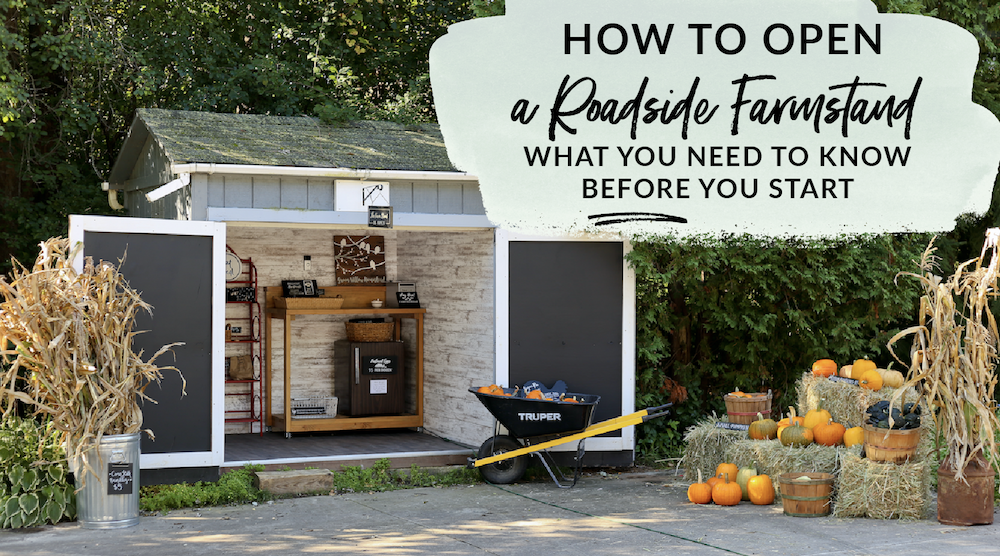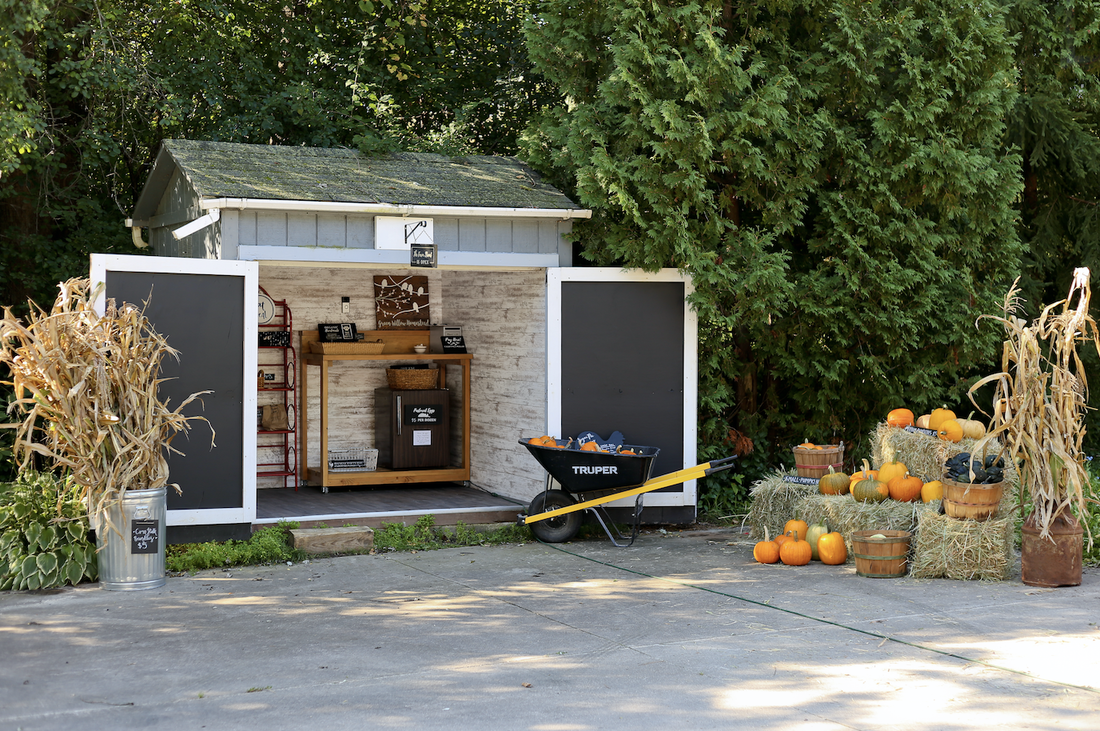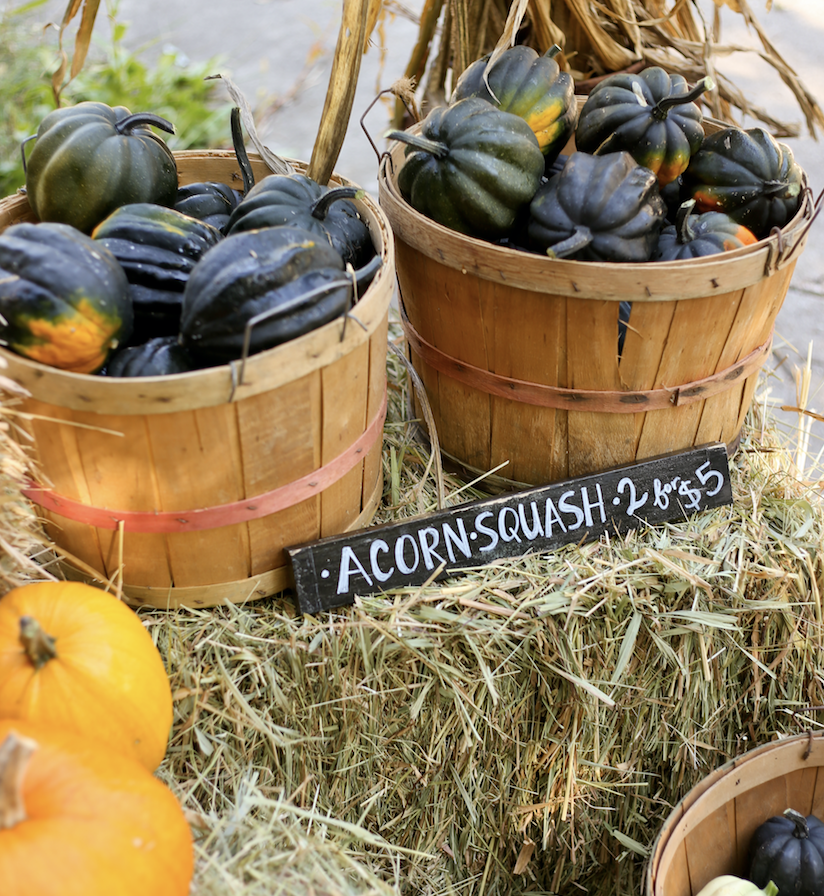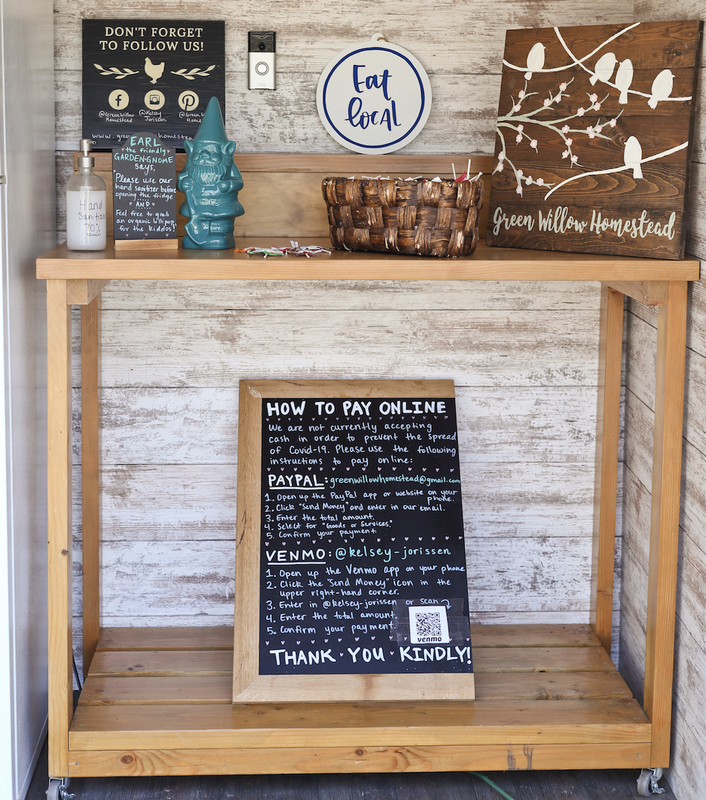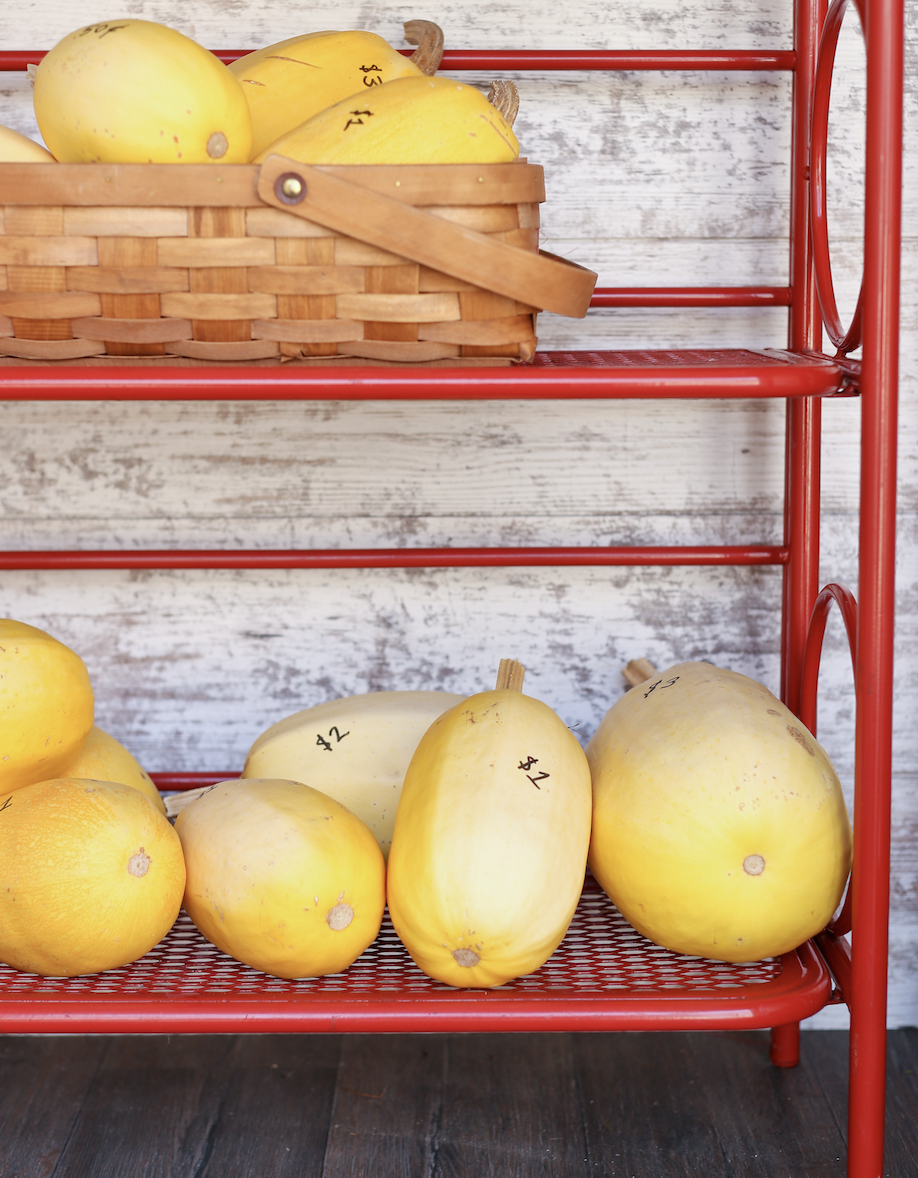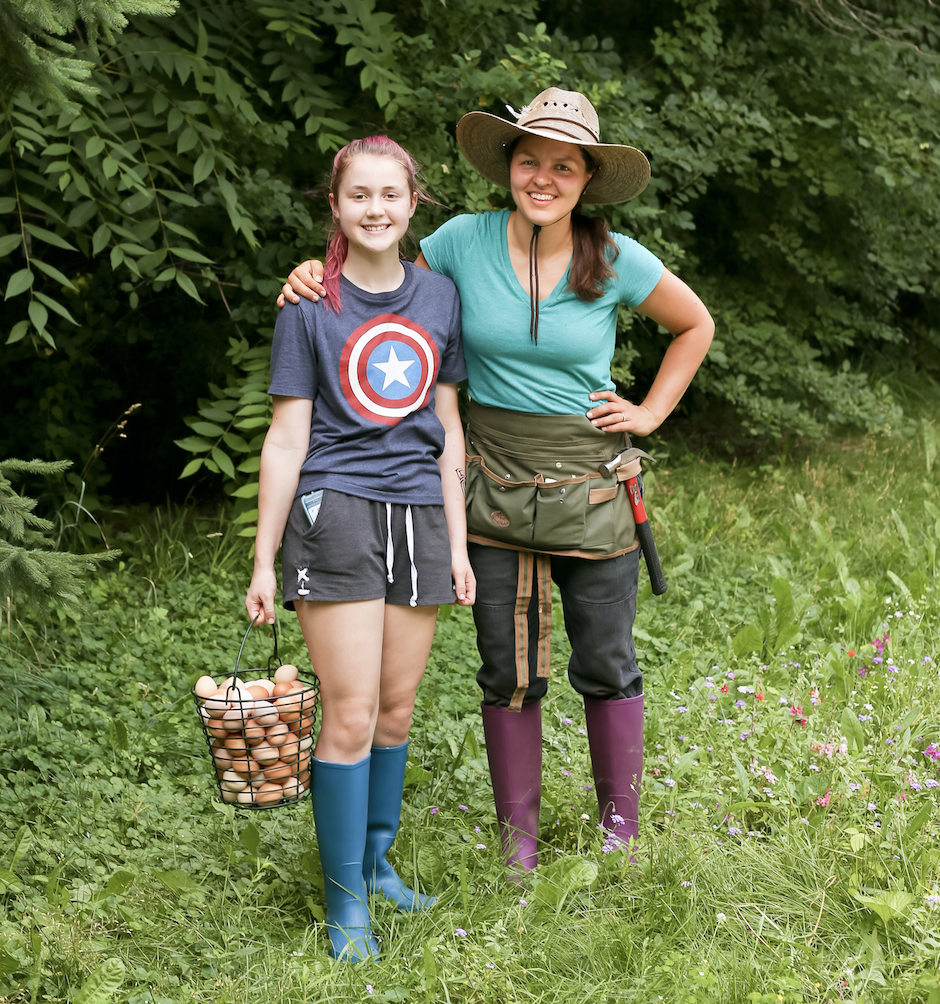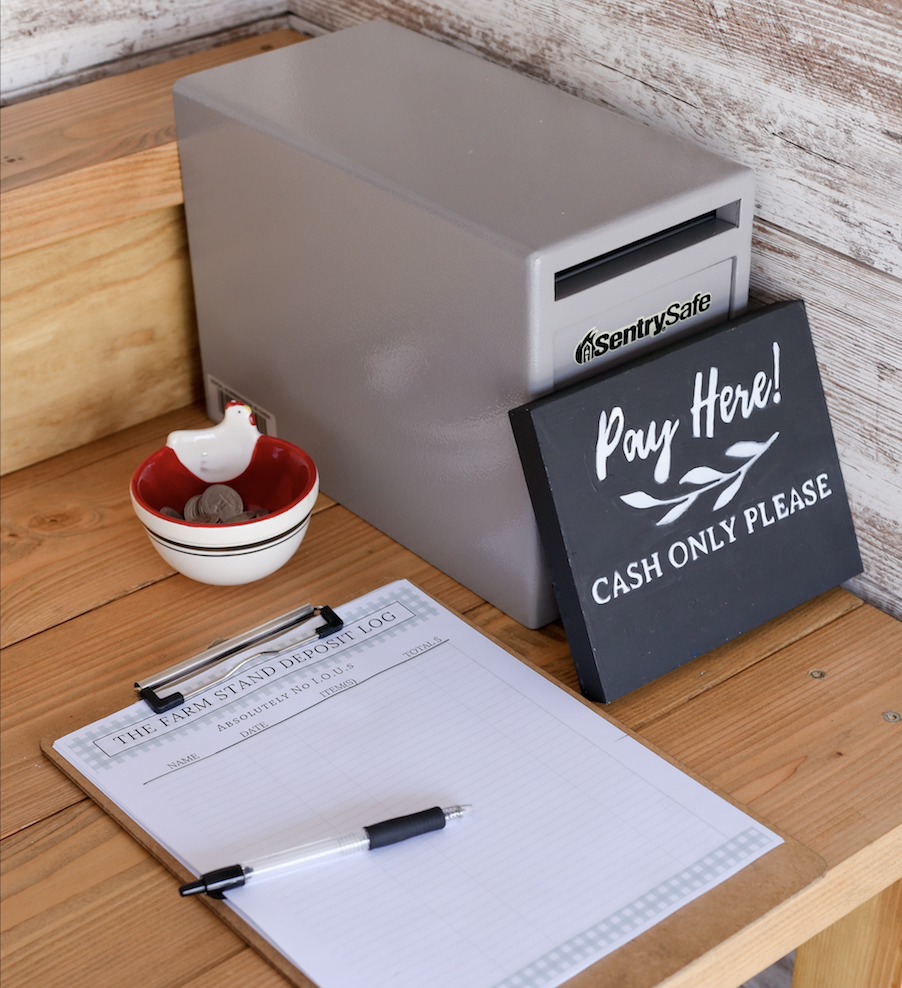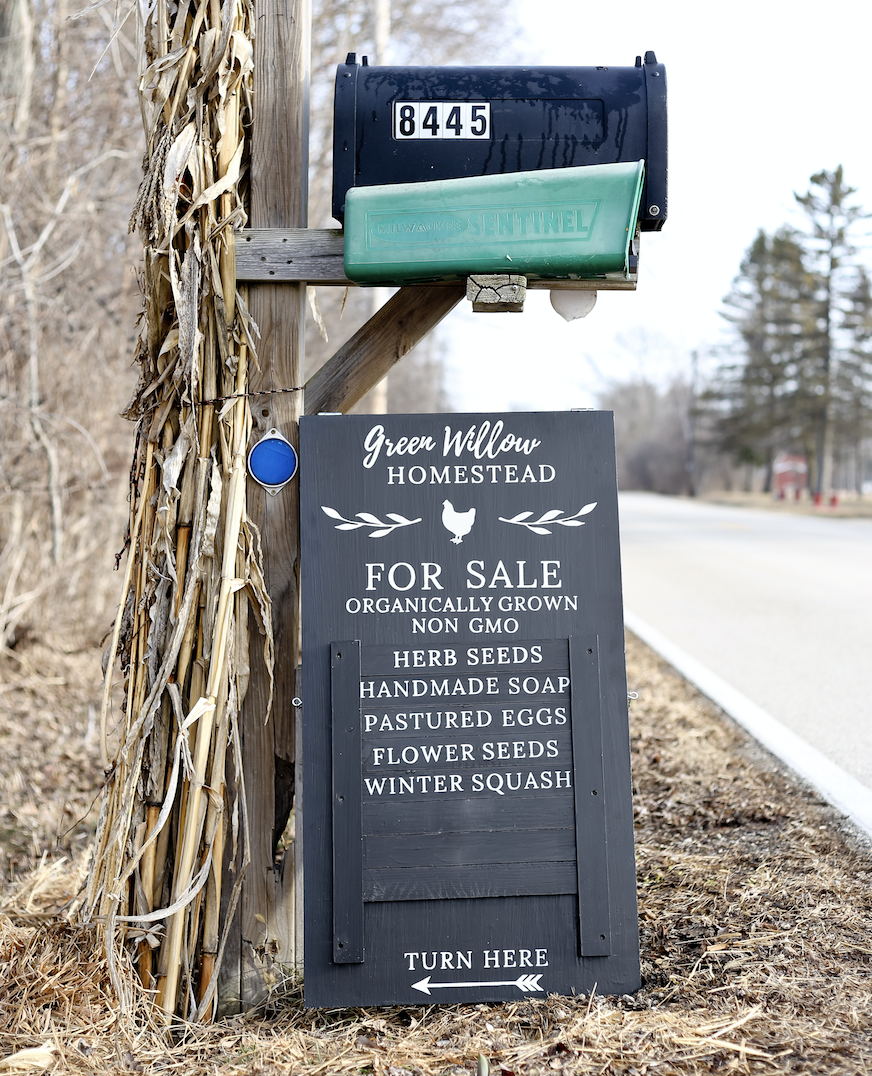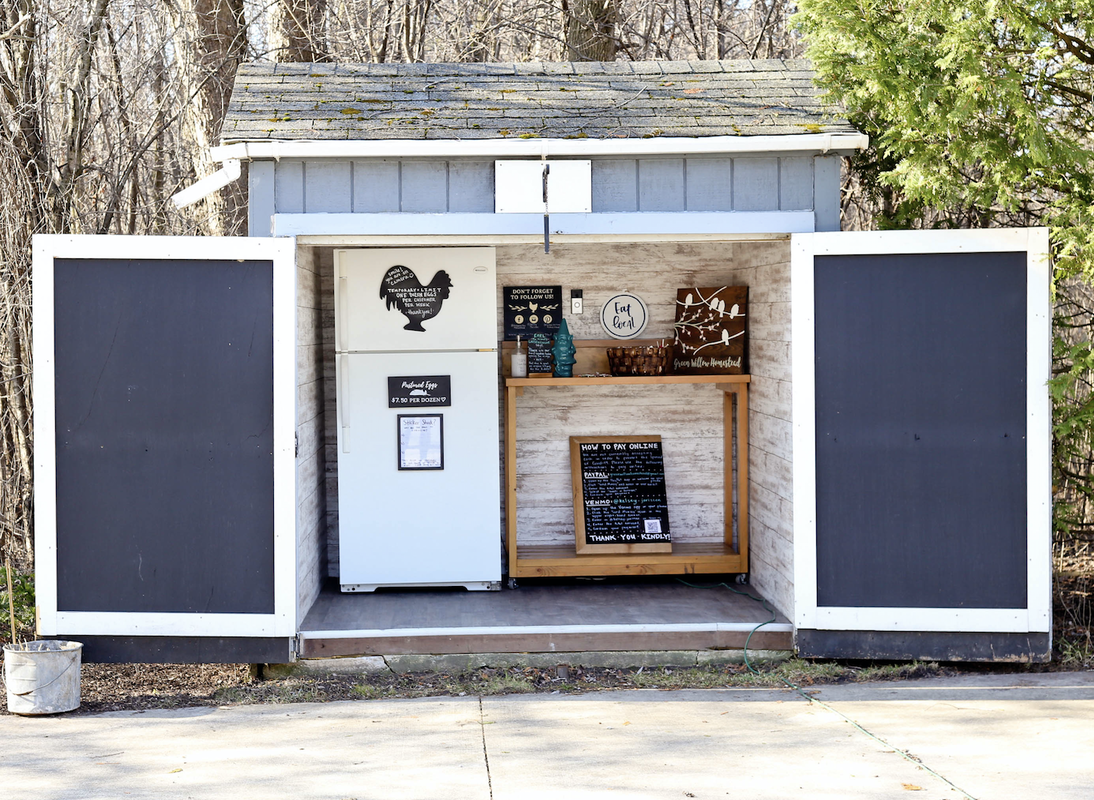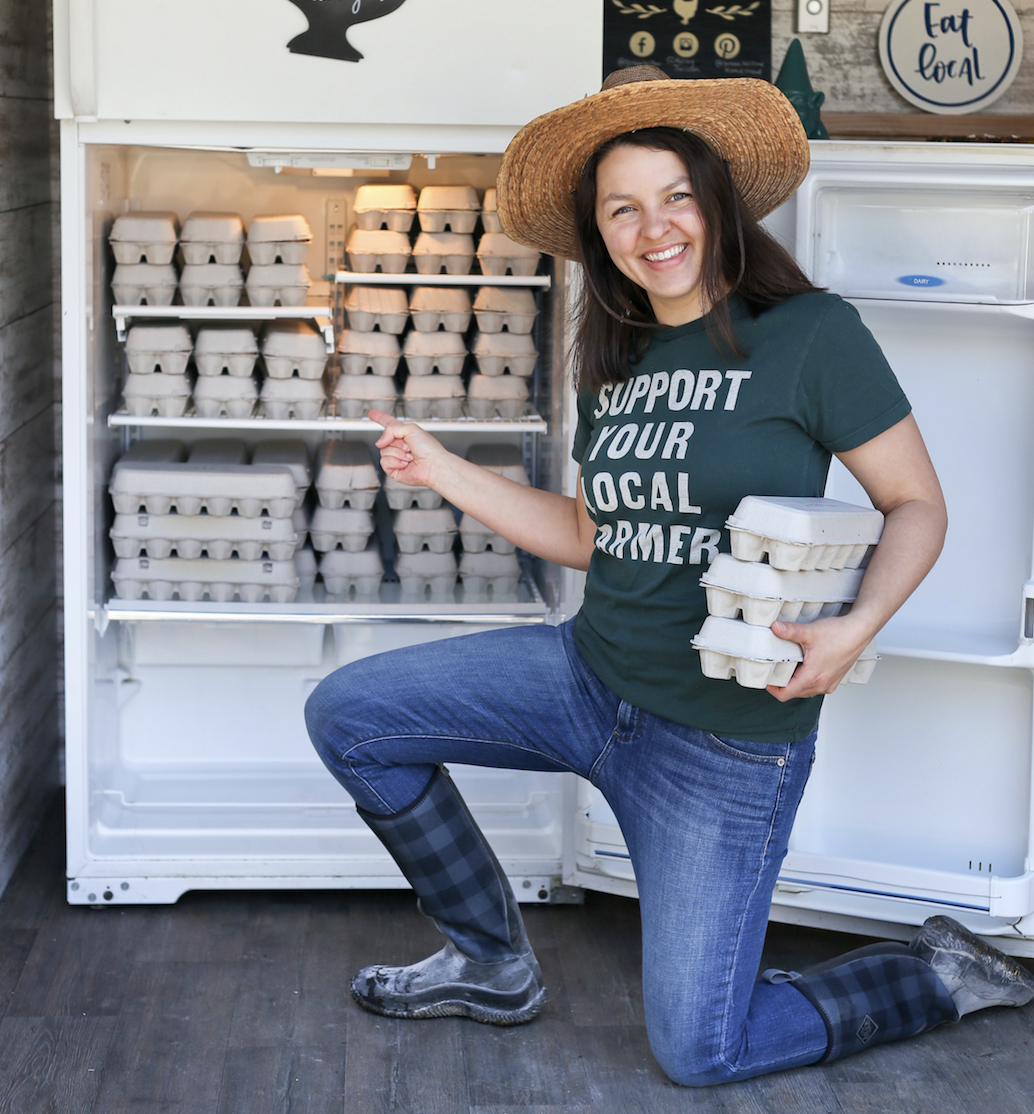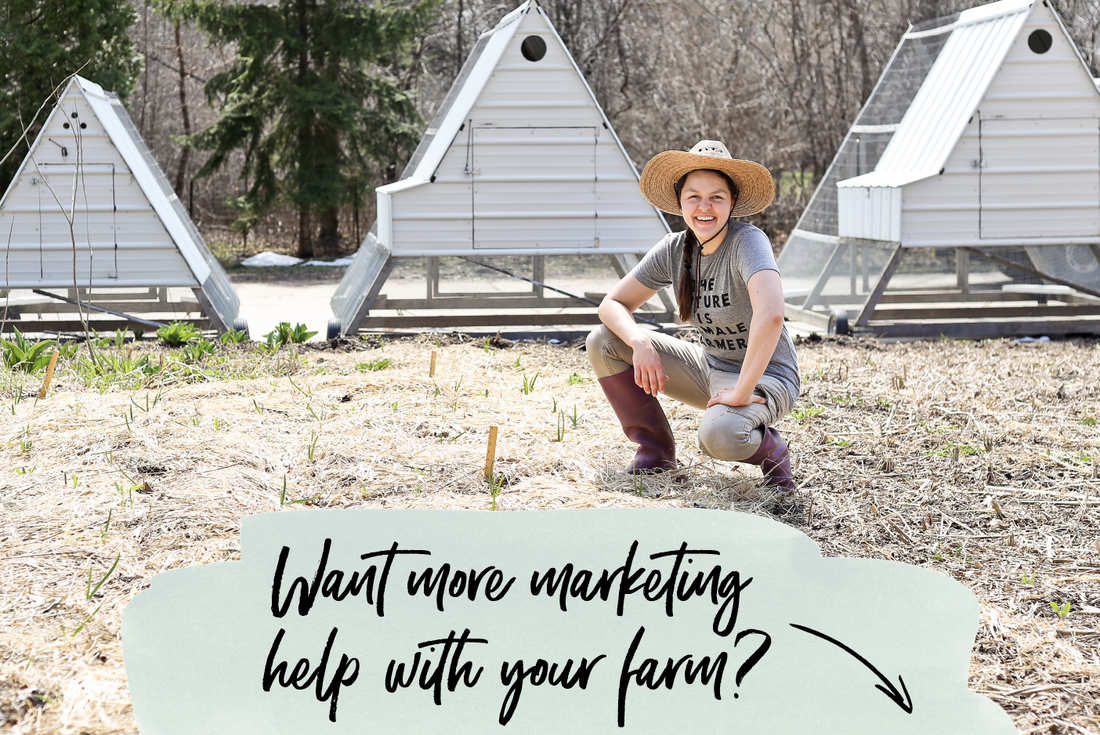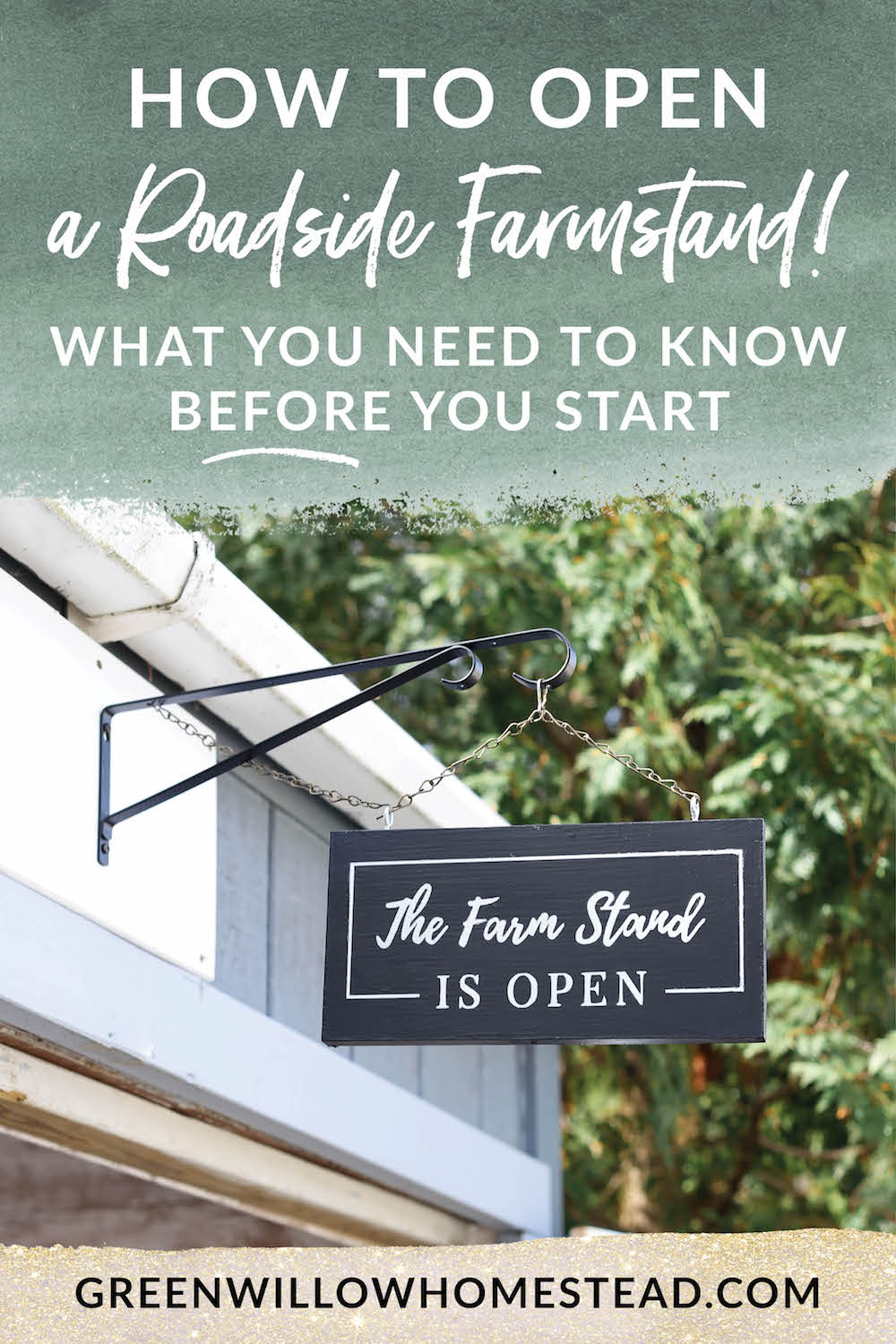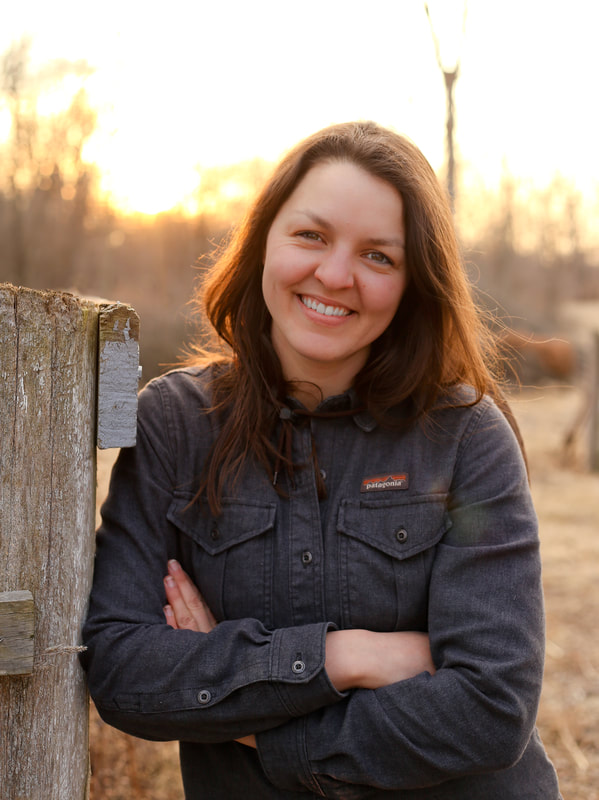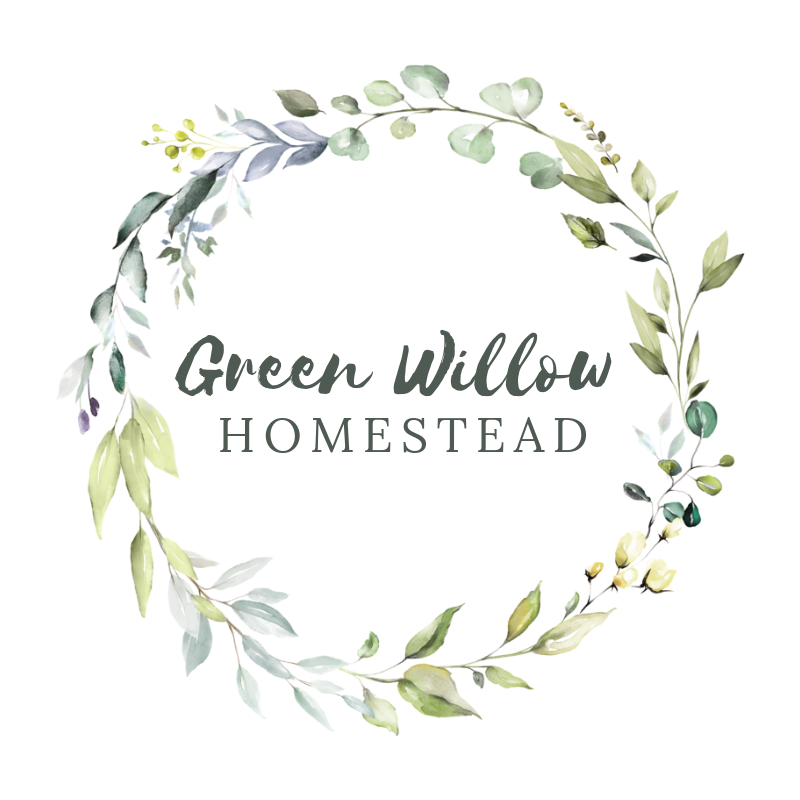|
Opening a roadside farmstand is no small feat. When I opened my roadside farmstand I wish there was someone with all the answers to my questions, but like so much of the small farming world there’s a lot of trial and error to be had before you figure things out. That’s why I want to share with you everything I’ve learned along the way as I opened up my roadside farmstand for our farm, Green Willow Homestead.
In this first post in my farmstand series we will cover:
Please note: Some of the links below are affiliate links, meaning at no additional cost to you, I will earn a commission if you end up clicking and purchasing an item. I worked hard to find my trusted favorites and I want to share them with you so you don't have to deal with all the crappy junk I had to go through. Nuff said.
Disclaimer: I am obligated to state that I am not a lawyer and the information contained in this post should not be seen as professional legal advice. If you use or rely on the information in this blog post, you do so at your own risk. How To Plan For Opening A Roadside Farmstand
First and foremost you need to answer some basic questions/prompts when opening your roadside farmstand.
As you think about what to sell, one of the best ways to brainstorm is to ask your community what they’d like to purchase from you. I did this when I was researching farmstands and asked my local community Facebook Group what would they love to see at a farmstand. The biggest answer was: farm fresh eggs! I think eggs are a farmstand favorite because nothing beats a pastured or free-range egg versus the store bought flavorless eggs. Chickens are also such an easy entryway point into homesteading and small farming (click here to learn the nuts and bolts of chicken keeping). Publicly selling eggs requires a few legal steps and handling procedures though. For example, in Wisconsin you need to register with the Department of Agriculture, Trade, and Consumer Protection, and adhere to their handling laws, and this brings me to my second prompt for you. When it comes to opening a farmstand, what is legal to sell in your area publicly and direct to the consumer?
Direct to the consumer means that you are selling your homestead or farm’s produce and food right to your customer in a private or public sense. When it comes to a farmstand though, the selling is always considered “public” so you need to be mindful of what is and isn’t legal to sell in a public sense.
These laws are called Cottage Food Laws imposed by the FDA and USDA on small farmers and producers selling directly to their consumers. It’s extremely important to research and heed these laws because getting slapped with a fine or a lawsuit is not out of the question. Each state, and even county, has different laws that affect what you can or can’t sell publicly in your area. This ranges from baked goods to grains to meat products to dairy to eggs. The two best tips I can give you to navigate Cottage Food Laws are:
So for example, here in Wisconsin our handling procedure requires that we wash our eggs and put them in a refrigerator no higher than 41°F. Double check the laws on selling whatever particular food item you are interested in to be sure the process is affordable and doable for you. How will the farmstand work for customers and how will you take payment?
With our farmstand, we decided to go the honesty system route with a little added security (more on that later). What I like about the honesty system is that I don’t have to be physically present to accept payment. All I need to do is restock the farmstand daily or weekly. This frees up my time considerably as a farmer and homesteader.
The thing to know about the honesty system though is that you need to set out clear and concise directions for your customers so they understand how the farmstand works and how you accept payment. I can’t tell you how many honesty-system farmstands I’ve pulled up to and was confused as to how to pay or where to even put my payment! Knowing this, I created clear instructions on my website, social media accounts, and physically in the farmstand. I suggest you do the same! As for payment options, you can decide between taking cash, online payment, or both. I will share more detail about how we do this at our farmstand below. What type of hours and schedule should I have for my farmstand?
Where we live in Wisconsin, the growing season lasts from April to October, so we have our farmstand open only during that time. The break during the winter is much needed! What do we do with all our eggs during the winter you ask? Well, we collect our customer’s email addresses and then announce egg subscriptions at the end of the year (like a CSA) and sell about 30 weekly shares for the winter months. It’s a great system and I highly recommend it to other pastured egg farmers.
As for hours, we do Thursdays through Sundays, 8am to sunset, from April to October. I like being able to restock the farmstand Monday - Wednesday and clean it up. We will also take some weekends completely off, like for vacation or when the weather gets too hot and egg laying slows down. Some farmstands are open everyday of the week, but I think it's important to find a workflow that works for your lifestyle. Which brings me to the final prompt for you. What would the day-to-day work look for you when keeping a farmstand open?
Do you have kids that need to be brought to school each morning? Then be sure to work around that schedule and make things as low stress as possible for you. Remember you can hire part-time help, accept volunteers and interns, or do it all yourself.
With our farmstand, we hired two paid interns at $10/hr and kept them on for three summers. They agreed to sign Hold Harmless Agreements to waive liability if an accident were to happen, which I strongly suggest you also do if you have people on the farm working. The interns washed eggs, cleaned the barn, helped in the market garden, and functioned as farm sitters when we went out of town. They have been an incredible help and I'm so glad I decided to do an internship. In doing so, I shared skills with young girls in my community and took some of the pressure off of myself. Remember, the farmstand will be yours to make decisions about so be sure to create a system that works for you and doesn’t tire you out. How do you set up the honesty system at a farmstand?
First and foremost you need to decide if you are going to accept cash or online payment. We have done both at our farmstand. Before the pandemic, we happily accepted cash by bolting down a heavy duty security deposit box inside the stand which worked perfectly. I wholeheartedly recommend this SentrySafe security deposit box because it’s fishing-proof and tamper-proof. We then set out quarters in a small bowl to help people make change if they needed to. Lastly, used a deposit sheet on a clipboard so customers could personally note the items they purchased and their total. Every week I would check the written deposit log’s total against the cash total to make sure everything checked out.
Pro farmstand tip: Set prices to the amount of bills. For example, price items at $1, $5, $10, $15, and $20 so there is little to no need to make change for customers. Then once the pandemic hit, we switched over to only accepting online payment through apps like Venmo and PayPal. We asked that customers pay using their smartphone once they had their items in hand (never in advance) and that if they didn’t have a smartphone they could pay by computer when they got home. With a big change like this, we set out clear instructions for our customers so they knew exactly what to do. We also emailed them, posted on social media, and put the instructions on our website. Because the online system automatically noted the total and the items purchased, we did away with the physical deposit log.
We also knew that regardless of cash or online payment, people were bound to have questions. So when we first opened the farmstand we installed a Ring Video Doorbell (pictured above) which also functions as a security camera and can be very important if we were ever to be held liable for an injury on our property. Ring systems can vary but I highly recommend this one, which connects to a Ring App on your phone. We spend only $30/year for the Ring service and bought a WiFi extender to boost our WiFi signal from our house to the farmstand so the Ring Video Doorbell can function and communicate with my phone.
Customers can push the button on the Ring Video Doorbell, which will ping my smartphone. I can actually talk to customers through the Ring Video Doorbell, even if I’m out running errands and answer their questions. It’s such a lifesaver for me and my customers. The Ring system also alerts me when there is motion at the farmstand and I can use the app on my phone to see in “Live Mode” who is at the stand. I don’t use this often, but the notification typically let’s me know how many customers stop in throughout the day ... or if a FedEx truck is sitting in our driveway! Should I form an LLC for my farmstand?
I highly recommend forming an LLC when you open up your roadside farmstand. While some might say it’s too much work when you can be a sole proprietor, I think the pros far outweigh the cons.
First, the LLC shields me personally from liability if a customer were ever to get injured while on our property at the farmstand. Second, it keeps me on top of my finances and accounting for the farmstand as we file taxes every year with the LLC. Third, I can write off expenses on the farm against my income earned at the farmstand. While some people think it’s complicated and scary to form an LLC, companies like LegalZoom make it so incredibly easy. I’ve used LegalZoom multiple times for forming LLCs (my husband and I own three businesses!). Here are a few pointers to help you navigate LegalZoom and save some money:
Should I get liability insurance for my farmstand?
Yes! Most homeowners insurance will have options for business insurance if you have an on-site business. We were with Country Financial when we opened our farmstand and it was only an additional $12/month for business/liability insurance, which gave us ample coverage if someone injured themselves on our property or damaged their vehicle. I cannot stress enough how important it is to protect yourself from liability if you have a roadside farmstand - accidents happen and you don’t want to be responsible for them!
This insurance also covers our assets on the farm if ever damaged or stolen (like our tractor, tools, barn etc). Liability claims and even theft or arson are definitely things to be aware of when opening a farmstand, and that’s why having a security camera to capture customers on site can be extremely useful. I like to think the best of people, believe me, but a security camera can be your saving grace if someone tries to wrongly come after you or damage your farmstand. Another thing to note is that my customers have never complained about the Ring Video Doorbell and, in fact, like that the option is there to get a hold of me. I even had a customer use it when she thought something was amiss at our property over a holiday weekend, we were on vacation, and our farm sitters were caring for the animals. She called and asked me if we were okay! I promise opening a farmstand is not all doom and gloom!
Doing your due diligence is extremely crucial, so I hope in sharing our planning process it’s given you some clarity or insight as to how you can go about creating a farmstand for your community. Security, legality, and liability are all things to deeply consider as you work through the planning stages of opening a farmstand. While they can feel overwhelming and scary at first, you’ll be much happier that you took the time to understand them.
Our farmstand has brought us friendship, community, and wonderful customers. Getting emails, texts, or posts about how much our customers love our eggs absolutely makes my day. Got questions or want some help as you start marketing your farmstand? In the last six years of running a farmstand, doing farmers markets, and managing a farmers market - I've learned a few things that I love sharing with other farmers and homesteaders. Sign up below for more resources I can send directly to your inbox! Thank you!You have successfully joined our subscriber list.
11 Comments
Monica B
11/27/2020 05:16:59 pm
Thank you so much for this info. I am considering opening a farm stand. How long did it take you to get started from planning to opening day! I want to start a stand next year, around this time next year. Do you think that’s doable given all of your experience? Thank you again!!
Reply
Kelsey
11/30/2020 08:46:15 am
You are so welcome Monica! You can absolutely get ready to launch in a year. I did it in about the same timeframe. I highly recommend my online marketing course I teach, The Cultivating Capital Course, which helps farmers and homesteaders market their goods. You can find it under the "Courses" tab on my website!
Reply
Ashlee
6/20/2022 09:03:13 am
Hi! Can you tell me where you buy your egg cartons?
Reply
Kelsey
6/20/2022 05:17:04 pm
Absolutley! We get ours from The Egg Carton Store!
Reply
Alex
1/11/2023 05:34:38 pm
This post is FABULOUS!👏👏👏 I opened a community sourced farmstand this last spring and did many of these steps to a tee! This definitely helps settle my business-owner's anxiety a bit!
Reply
Kelsey
1/19/2023 10:36:22 am
Thanks Alex! I'm so glad you found the post helpful and I'm wishing you the best of luck with your farm stand!
Reply
Joy
5/6/2023 02:06:49 pm
You are so amazing! Thank you for sharing your knowledge and for the inspiration!
Reply
I like that you talked about having a farm insurance policy that will protect you if there are damaged or stolen in your property like tractors, tools, barns, and more. I can imagine how investing in those kinds of coverage will definitely save you a lot from losing money. Also, you will have to worry about the expenses of getting new ones or getting items repaired, since you will not be paying or buying them from your own pocket anymore.
Reply
1/30/2024 09:14:49 am
Thanks for the tips, we'll definitely take them into account! The key is to understand the local laws and regulations. We'll be looking for the best spot for our kiosk. Great point about the importance of quality products, that's our top priority!
Reply
Kelsey
5/27/2024 09:25:14 am
I'm so glad you liked it! We built our sign entirely from scratch!
Reply
Leave a Reply. |
Meet Kelsey,Thanks for stopping by Green Willow Homestead! From chicken rearing to composting, we've got our hands full and we love sharing what we've learned along the way. Follow along as we turn the 80 acres we call home into a farm that serves its community and a homestead that nourishes us throughout the seasons. Grab the EbookListen in!FREE Guide!Tune in to our YouTube ChannelInspirationsCategories
All
Favorite Books of 20241. Erosion
2. Braiding Sweetgrass 3. As Long As Grass Grows 4. The Small Scale Poultry Flock 5. The Zero Waste Solution Archives
April 2024
|
FOLLOW KELSEY ON INSTAGRAM!
As an Amazon Associate I earn from qualifying purchases. |

